Secret liaisons by helicopter, a Mid-Levels flat and love money: how Hong Kong official Wilson Fung and his high-flying extramarital lover ended up in court
Secret liaisons by helicopter, a Mid-Levels flat and love money: how Hong Kong official Wilson Fung and his high-flying extramarital lover ended up in court
- Property dealings in midst of love triangle lead to intriguing tale of power, infidelity and money, played out in District Court
- Wilson Fung, an ex-government official, cleared of bribery along with co-defendant following high-profile trial, but Fung found guilty of misconduct in public office
Wilson Fung was cleared of bribery after the judge accepted he was in a loving relationship with the businesswoman prosecutors argued gave him a sweetener. Photo: Sam Tsang
Hong Kong official Betty Fung Ching Suk-yee did not respond to questions in 2016 when reporters ambushed her outside the property at the heart of a scandal involving her husband and the sister-in-law of gaming tycoon Stanley Ho Hung-sun.
But her bare ring finger spoke volumes.
Just a week earlier, local paper HK01 accused the then permanent secretary for home affairs of gaining an unfair advantage, when she acquired her luxury home by swapping property with a businesswoman who used to run companies that had dealings with her husband in his former official capacity.
The report on April 1, 2016 caught citywide attention and prompted a political party chairman to lodge a complaint with the Independent Commission Against Corruption the following day, demanding the couple account for their ties to Cheyenne Chan Ung-iok, from one of the city’s most powerful business families.
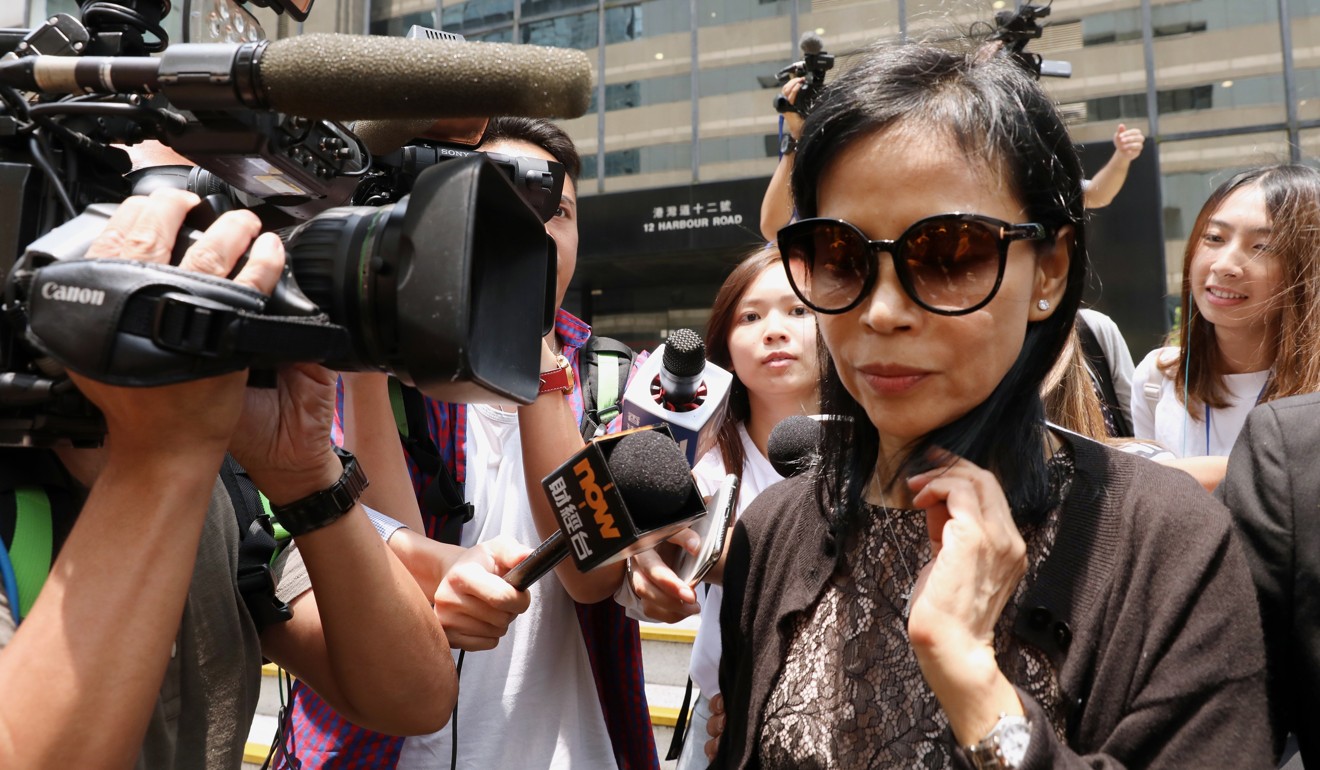
Cheyenne Chan was cleared after her counsel argued she was having an affair with the man she was accused of bribing. Photo: Nora Tam
But the serious allegations of misconduct were soon overshadowed by rumours of a love triangle, that was seemingly confirmed when the official’s husband finally broke his silence.
A day after his wife was seen leaving home without a ring, Wilson Fung Wing-yip wrote on Facebook: “I have never told my wife any of the dealings between myself and Ms Chan.”
Yet far from answering public concerns, his statement left many wondering whether he was trying to come clean about his affair, or save his wife’s promising political career.
So, it was a curious development when investigators decided to prosecute only Wilson Fung and Chan two years later, and not his wife, who had just been appointed head of the government’s new think tank, the Policy Innovation and Coordination Office.
Their mysterious relationship would go on to steal the spotlight of the pair’s bribery trial at the District Court, as the defendants testified to a secret 13-year affair that only fell apart when it came under the public eye.
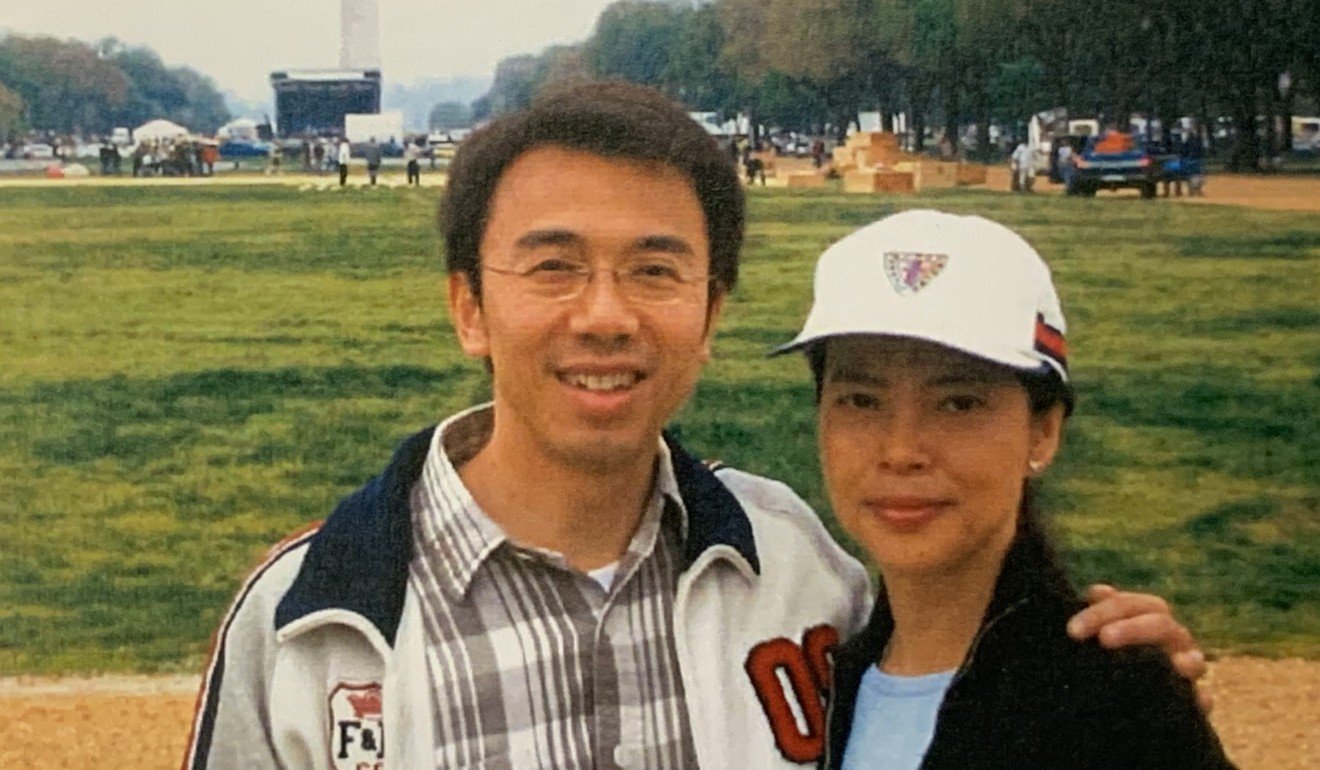
Wilson Fung and Cheyenne Chan on their first trip to Washington in April 2005, which was presented to the court as evidence the two were in a relationship. Photo: Handout
But can love be a defence to bribery?
On Wednesday, district judge Douglas Yau Tak-hong found this love story to be genuine, leading him to rule in the defendants’ favour and acquit them.
Chan, 63, was found not guilty of offering an advantage to a public servant while Fung, 55, was cleared of accepting an advantage.
On hearing the verdicts, the pair exchanged smiles in the dock, before Fung learned he was convicted of another charge of misconduct in public office.
The flat
The high-profile trial centred on a flat at One Robinson Place in Mid-Levels that Betty Fung bought for HK$10.2 million (US$1.3 million), after Chan signed the initial purchase agreement and paid off the initial deposit of HK$510,000 on September 28, 2004.
The property was later returned to Chan in 2013 when her company, Wiseson, offered two flats in Sing Woo Crescent, in Happy Valley, in exchange. The difference in values then – between the One Robinson Place property and the two flats – meant the Fungs topped up the exchange with HK$6.5 million.
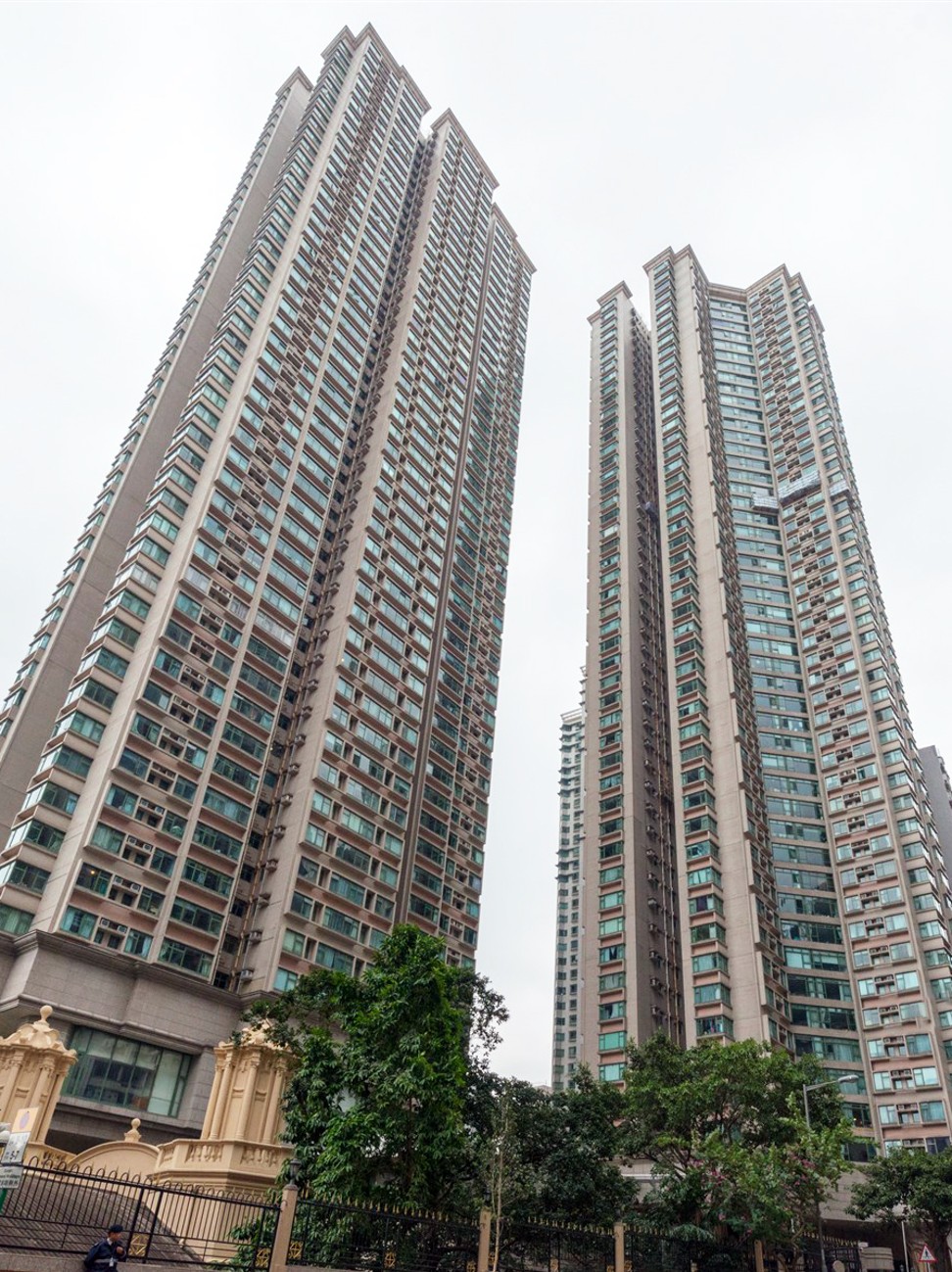
The trial focused on property payments relating to the purchase of a flat in One Robinson Place, Mid-Levels, bought for HK$10.2 million in 2004. Photo: SCMP
The Fungs then spent HK$2 million renovating their new 3,000 sq ft purchase and called it home – until it became the heart of a scandal that broke on April 1, 2016.
Media reports of the rare – but legal – flat-swapping arrangement led investigators to bundles of curious deeds, estate agency and purchase agreements.
The official had called the accusations against her unfair, because they were based on a groundless assumption she knew the other party in the flat-swapping deal, when she only learned about it through questions from the media.
Fung had signed the deed of exchange after her lawyers performed due diligence with Chan’s secretary.
A source familiar with the investigation agreed it was plausible that Betty Fung did not know Chan, or about the businesswoman’s relationship with her husband, when she sealed the deal.
The age of the Happy Valley flats complicated the prosecution, because its history of more than 60 years made it a challenge for investigators to engage surveyors who could carry out a valuation with confidence.
It was hard to prove if Betty Fung had indeed paid below market price, underpaid her stamp duties and benefited from the transaction.
Valuable air traffic rights
But her husband, a former deputy secretary for economic development and labour, was in a different position since he had handled, and was processing, applications from companies owned by Chan when she settled his home’s initial deposit out of her own pocket.
At the time, the Hong Kong government had been eager to develop the city into a regional aviation hub, and introduce new projects to revive the tourism industry following the devastating impact of the Sars outbreak in 2003.
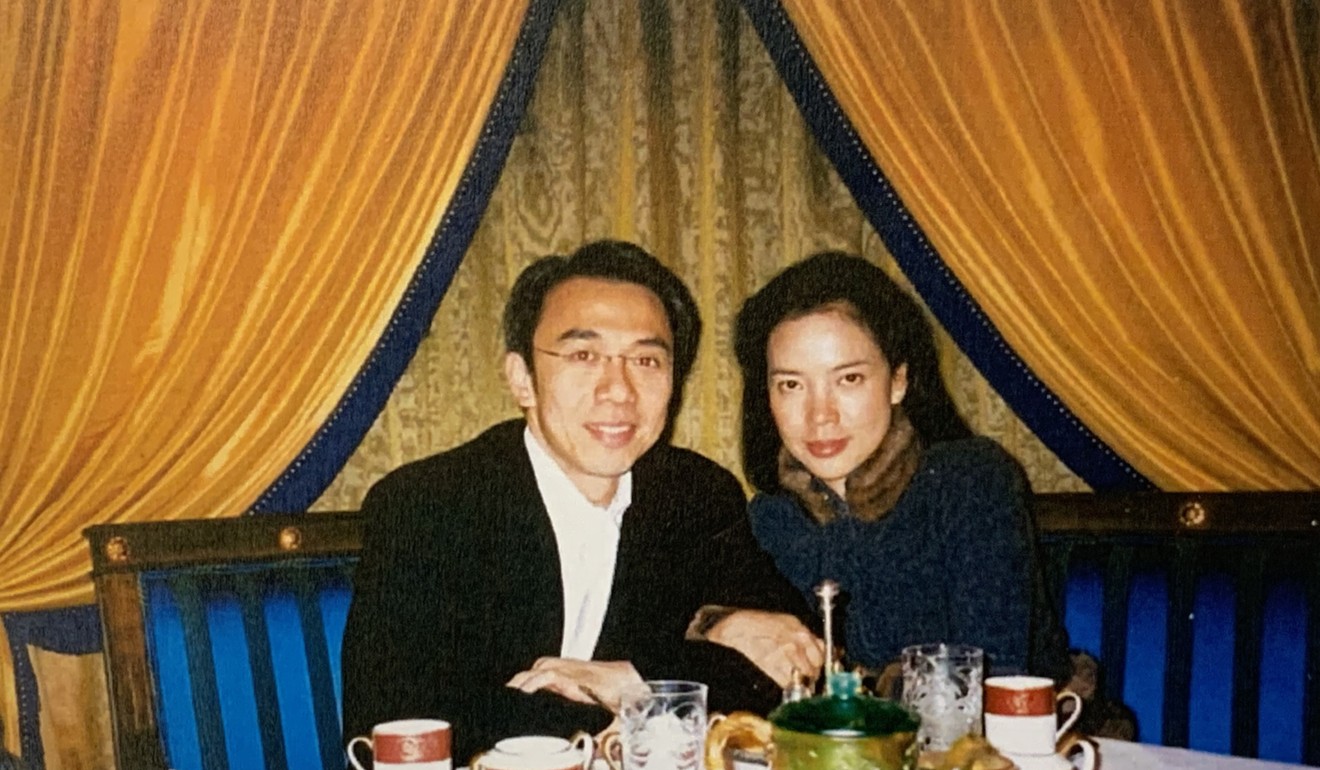
Wilson Fung and Cheyenne Chan confessed their feelings towards each other during dinner in Macau on December 10, 2003. Photo: Handout
As head of the aviation division at the Economic and Development Bureau from April 2003 to July 2006, Fung oversaw the allocation and distribution of precious air traffic rights and other aviation-related matters.
His boss, then permanent secretary Sandra Birch Lee Suk-yee, said she demanded honesty and integrity from all subordinates, and banned them from receiving gifts such as seat upgrades, since they would be handling very sensitive applications involving intense business interests and competition.
But Fung never told the government about the HK$510,000, or his personal dealings with Chan, a director and shareholder of Helicopters Hong Kong – before it was renamed HK Express – and later the chief executive officer of Heli Express.
Love as a defence
The law does not require prosecutors to identify a specific instance of favourable treatment, so long as they can prove beyond a reasonable doubt that each defendant offered or accepted the advantage with a corrupt intent, and in Fung’s capacity as a public officer.
Prosecutors argued love was no defence, citing the possibility the money was offered to stop him making things difficult for her companies.
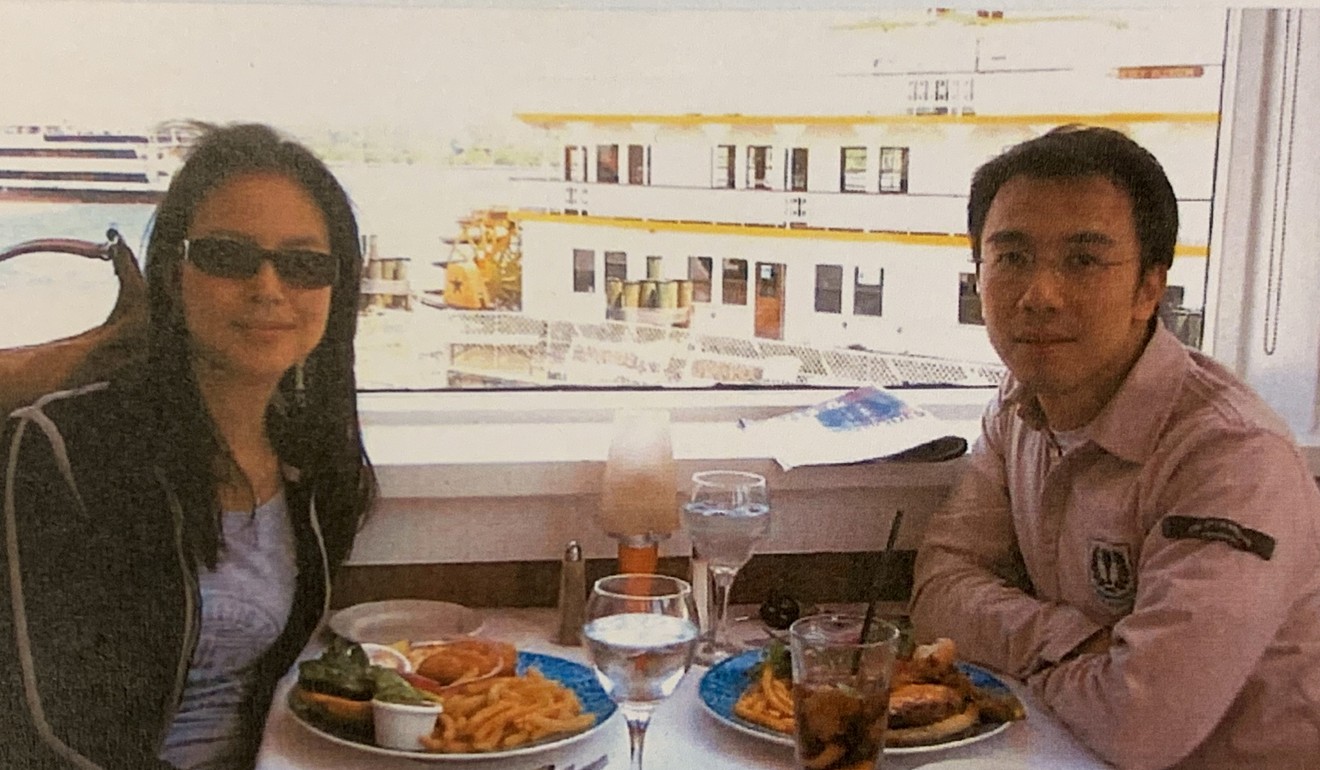
Cheyenne Chan and Wilson Fung dining out in Washington in 2005. Photo: Handout
But Fung said he was “absolutely loyal to the government” and explained how he had settled the HK$510,000 with profits he helped Chan earn from another property transaction.
Her counsel Selwyn Yu SC stressed the payment had nothing to do with the kind of public servant he was.
“Why would she need to offer a sweetener?” Yu said. “To put it bluntly, she’s given him herself … Even if she had offered a bribe, she did so for Fung’s heart, not his public office.”
Genuine love
At trial, the court heard for the first time how Fung and Chan met when her business partner introduced them during a lunch in 2003.
He recalled she was quiet, but said she left him with a “rather good impression”, while she testified to becoming “very happy” since meeting the official, when her own marriage with businessman Domingo Chen was falling apart.
After another encounter at a Cathay Pacific drinks party and a few tennis dates later, the pair flew to Macau on one of Chan’s helicopters and confirmed their relationship over dinner on December 10, 2003.
That was a year after Fung and his wife, who married in December 1998, welcomed their only daughter, and before Chan divorced her husband in June 2005.
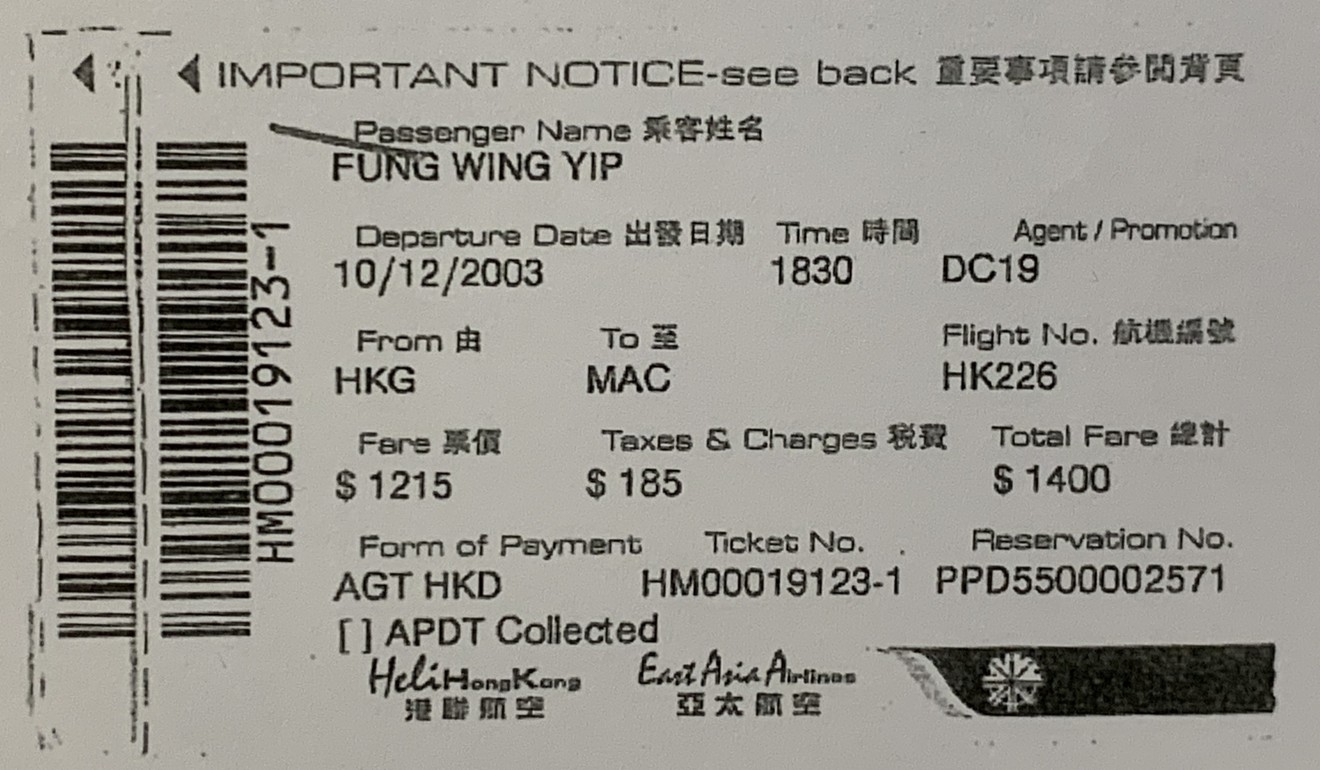
Wilson Fung’s helicopter ticket to Macau on the day he started his secret 13-year affair with Cheyenne Chan, who would later become his co-defendant in a bribery trial. Photo: Handout
Fung said he liked that Chan never made demands, while she appreciated how he could understand her without words and considered him “the man of her life”.
Their love story was supported by Chan’s collection of memorabilia that included the tickets to that first helicopter ride and a receipt of her hotel stay in Washington.
The Post learned that she also kept their WhatsApp messages.
Official travel records showed they went to Macau on 34 other occasions and to mainland China on five.
The court heard Chan waited for Fung’s calls, moved closer to steal time for secret reunions, and eventually took up his avid interest in property investment to buy 30 flats upon his advice.
Chan also enjoyed these flat viewings because she was sometimes mistaken for “Mrs Fung”.
His name was found on five of her property purchases.
When asked what had kept them together through this difficult affair, Chan said they were genuinely in love.
Her lawyers were also eager to highlight the fact that prosecutors had never challenged the truthfulness of their relationship.
The judge accepted the pair’s evidence to conclude their love had begun since December 10, 2003.
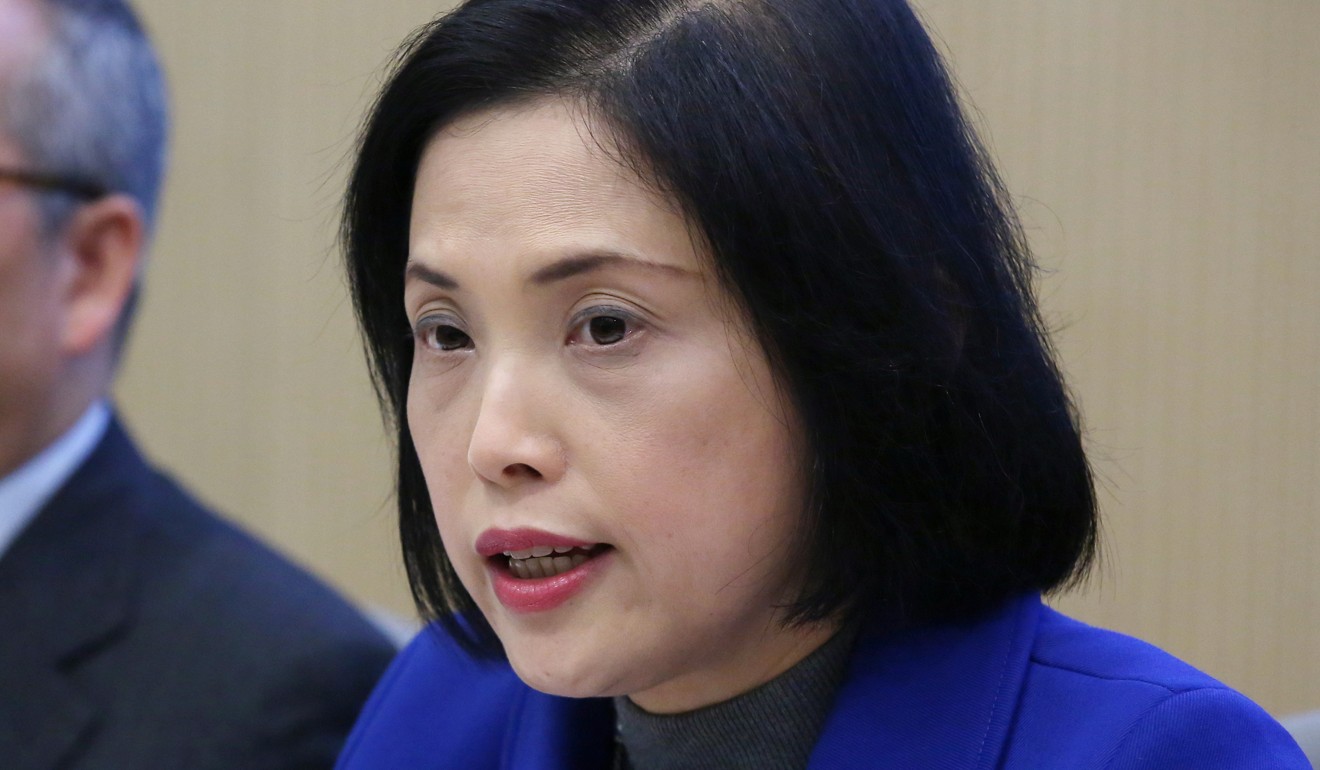
Betty Fung says the trial brought ‘great pain’ but urged the judge to be lenient on her husband Wilson Fung ahead of sentencing next month. Photo: Edmond So
But this defence also came with a price.
In a letter submitted to the court on Wednesday, his wife talked about the case for the first time since she left home without a ring.
She wrote the court case had brought “great pain to bear on me and my family”.
But even then, she pleaded for leniency for her husband to give her family “a chance to start a new chapter and move on”.
This article appeared in the South China Morning Post print edition as: Flats, love and infidelity


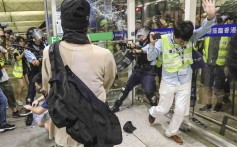







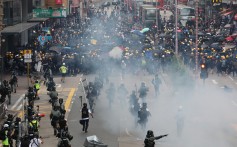
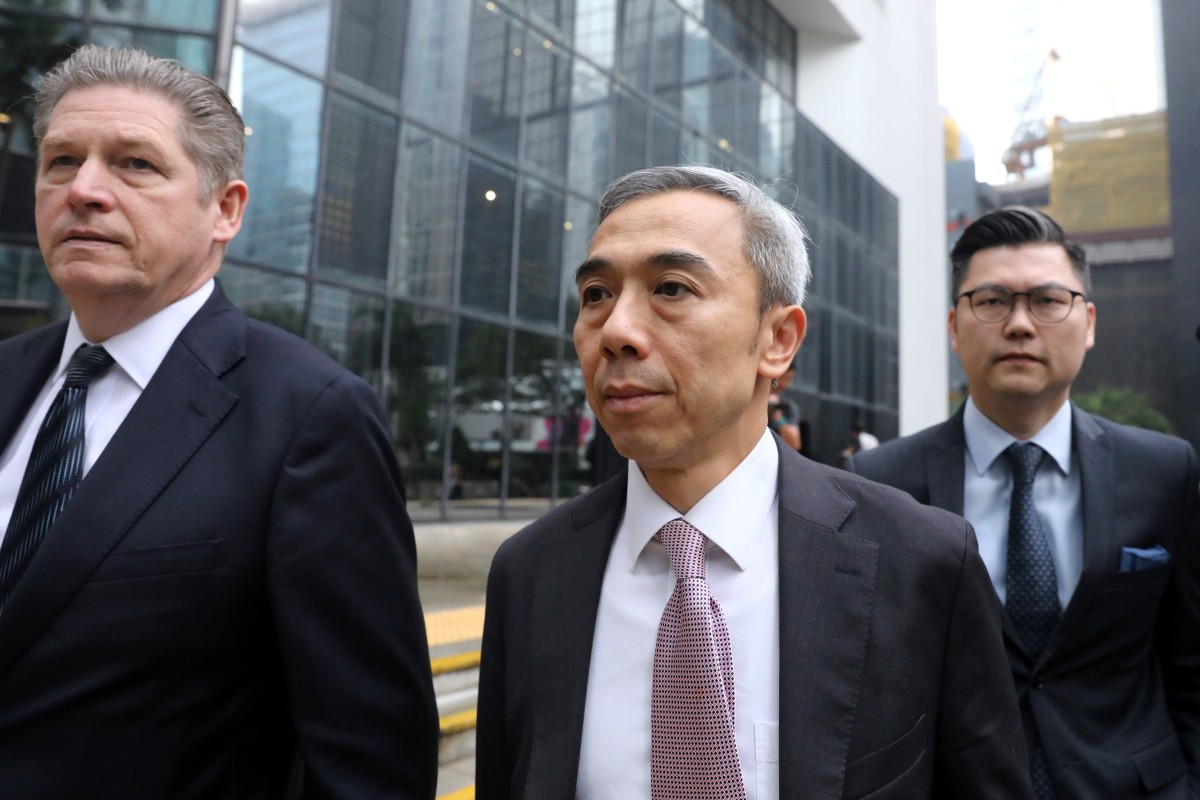
Comments